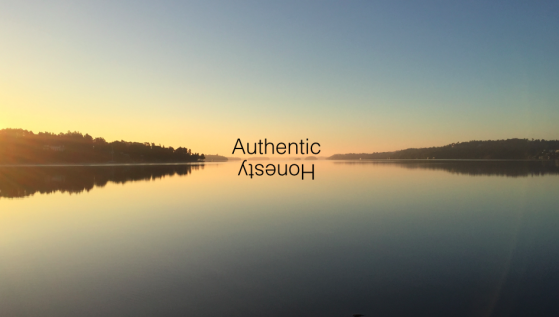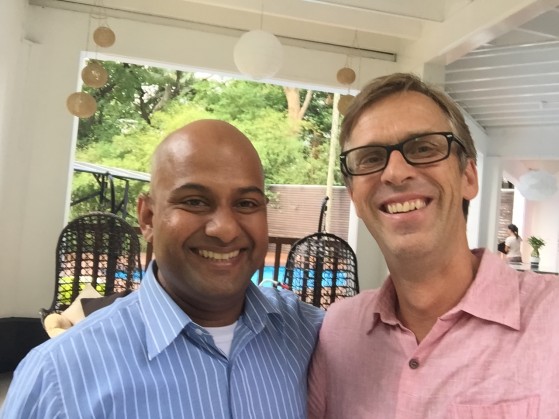
Todays post was inspired by an email I received over the weekend that got me thinking about why I am a speaker, about the only reason anyone should be a speaker – and actually, about why anyone should do anything.
The email read:
“If, by one word, one was to define what it is that drives all the positive aspects of life and success and for a person to be able to say that he has the greatest job in the world, I think a word that could come close is ‘honesty’.
I am fortunate to hear your talk (today). What I think came through (from listening to your speech) and which left me to ponder from your talk was Honesty. Honesty to your self and your surroundings.”
I happen to believe that being authentic, true and real as a speaker is, by far, the most important trait of a great speaker, so his email made me very happy.
I wanted to know more about why he had written this so, when I emailed him to say thank you, I asked him to elaborate on why he had used that word.
He replied:
“The word came to mind during and maybe, more so after your talk.
How did I come to that word?
Taking your talk and the choices you said to have taken that have brought you to where you are now, and reflecting upon my current situation as in ‘what could I learn from your experiences?’
Courage?
No, courage is not the right word.
Driven?
A clear no.
Determined?
Yes, this could be right, but determination needs a clear goal.
So, how do you set the right goal for yourself – by being HONEST with and to yourself, and with and to your surrounding.”
I had a laugh around how he had noticed how “driven” was a ‘clear no’ when it comes how I have built my life career. I am clearly not a person who have been actively pursuing a career in speaking with determination. 😉
And yet, here I am as one of the world’s most globally booked speakers.
How did that happen?
Well, I think Heikki, the person who wrote me those emails, nailed it:
To become truly successful at something, you have to do it for the only reason that matters: because it is who you are.
I do not speak for the applause…
Even though I am aware that it is a privilege to get people giving you such immediate and impactful praise every time you work.
I do not speak because of the money…
Even though the money is great.
I do not even speak because I love to speak.
I do love to speak.
I speak because that is WHO I AM. I feel that speaking is what I have to do.
And I hope that it shows when I speak.
A fellow speaker once told me that his client had called me “the most authentic speaker in Asia.” For me, that is one of the best compliments I have received.
I am writing this blog primarily for myself, but my secondary audience are people who are thinking of becoming speakers. If you are one of those people, please ask yourself this question: Why do you want to become a speaker?
People who become speakers for the wrong reasons are so depressing to see and so boring to listen to.
People who become speakers because that is what they have to do, because that is how they stay true to themselves, are a joy to watch.
Don’t believe me?
Compare politicians who are politicians because they picked that as a career or because they want power, and compare that with the politicians who went into politics because they are being true to themselves.
Lesson: There is only one way to give a speech, and only one way to be a great speaker — speak your mind and follow your heart.
(Suggestion: Submit your email address in the form to the right to get a convenient email summary in your inbox every time 10 new posts have been posted.)

